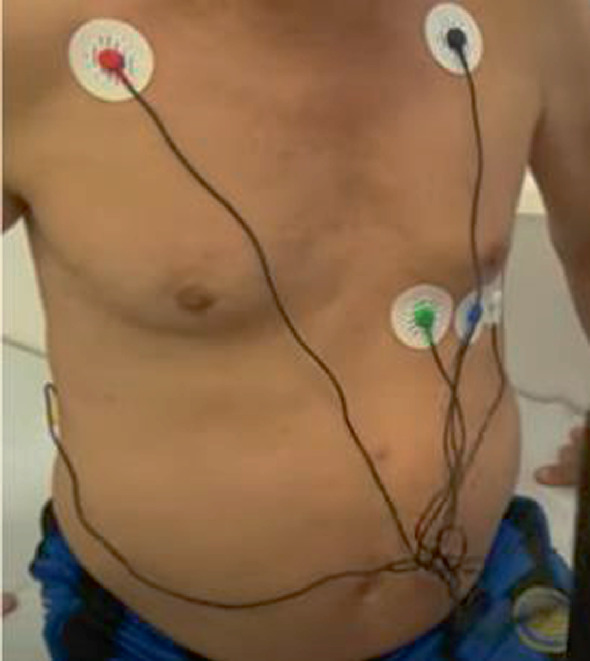Abstract
Video-learning (in the form of video films), when properly integrated into the curriculum, can make learning much more engaging and successful for medical and healthcare students. The aim of the present study was to compare the efficacy of learning practical skills (Holter placement) in Nursing students. The students were divided into two groups of 8 students each. The first group was given an algorithm on paper, and the second group - a specially made video film. The results showed that the acquisition of this medical manipulation was more effective in the students having access to the video film. 87.5% of the students who watched the film did well on the post-test, compared to 50% of the second group. When retesting after 14 days, the results show durability of the knowledge gained (<0.001). Students learning through a video lesson show higher satisfaction and retention of knowledge and skills. The results of the current study found that video triggers can be used effectively to capture learners’ attention and deliver a visual lesson. However, threshold motivation is required for active learning to be successful.
Access this chapter
Tax calculation will be finalised at checkout
Purchases are for personal use only
Similar content being viewed by others
References
Serbezova, I.: Interactive technologies in the training of future medical specialists. Scientific works of the University of Ruse - 2011, vol. 50, series 8.1. (2011). (in Bulgarian)
Hristova, T.A.: Optimizing Health Care Through Educational Videos. Rousseau University Publishing House “Angel Kanchev” (2021)
Meryn, S.: Multimedia communication: quo vadis. Med. Teach. 2, 87–90 (1998)
Hurtubise, L., Martin, B., Gilliland, A., Mahan, J.: To play or not to play: leveraging video in medical education. J. Grad Med. Educ. 5(1), 3–18 (2013). https://doi.org/10.4300/JGME-05-01-32
Gyurova, V.: Greta Dermendzhieva, Emil Varbanov, Silvia Varbanova. The provocation is a learning process. Asconi publishing house, Sofia. (1997). (in Bulgarian)
Georgieva-Tsaneva, G., Serbezova, I.: Investigation of the impact of video methods and serious games in the process of medical training in Bulgaria. In: INTED2020 Proceedings, pp. 1170–1176 (2020). ISBN: 978–84–09–17939–8, ISSN: 2340–1079. https://doi.org/10.21125/inted.2020.0409
Serbezova, I.: Need for change in the educational technologies of health professionals. Scientific Papers of the University of Ruse, 54, series 8.3, pp. 64–69 (2015). (in Bulgarian). https://conf.uni-ruse.bg/bg/docs/cp15/8.3/8.3-11.pdf
Project under the Scientific Research Fund “Development of a model for video algorithms for injection technology”
Serbezova, I.: Optimize training in health care through video methods, Mediatech-Pleven (2018). (in Bulgarian)
Video algorithms University of Ruse. https://www.youtube.com/channel/UC8jlo1PP8KC36_O-LRGHIyw/videos. Accessed 26 Apr 2023
Dimitrova, M., Roumenin, C., Lozanova, S., Lahchev, L., Rotger, D., Radeva, P.: An interface system based on multimodal principle for cardiological diagnosis assistance. In: Proceedings of the 2007 International Conference on Computer Systems and Technologies (CompSysTech’07). Association for Computing Machinery, New York, NY, USA, Article 51, pp. 1–6 (2007). https://doi.org/10.1145/1330598.1330653
Kosterelioglu, I.; Student views on learning environments enriched by video clips. Universal Journal of Educational Res. 4(2), 359–369 (2016). http://www.hrpub.org. https://doi.org/10.13189/ujer.2016.040207
Mayer, R., Fiorella, L., Stull, A.: Five ways to increase the effectiveness of instructional video. Education Tech. Res. Dev. 68, 837–852 (2020). https://doi.org/10.1007/s11423-020-09749-6
Cattaneo, A., Evi-Colombo, A., Ruberto, M.: Video Pedagogy for Vocational Education: An Overview of Video-Based Teaching and Learning. ISBN 978–92–9157–711–8 (2019). https://doi.org/10.2816/720936
Sablić, M., Mirosavljević, A., Škugor, A.: Video-Based Learning (VBL)—Past, Present and Future: an Overview of the Research Published from 2008 to 2019. Technology, Knowledge and Learning (2020). Springer https://doi.org/10.1007/s10758-020-09455-5
Film Medical University Varna, Bulgaria. https://www.youtube.com/watch?v=i0-jrcN6gEw. Accessed 26 Apr 2023
Acknowledgments
This Research was Funded by the National Science Fund of Bulgaria (Scientific Project “Investigation of the Application of New Mathematical Methods for the Analysis of Cardiac Data”), Grant Number KP-06-N22/5, 07.12.2018.
Author information
Authors and Affiliations
Corresponding author
Editor information
Editors and Affiliations
Appendices
Appendix 1.
Basic steps
-
I
Preparation for Holter ECG insertion
-
1.
Before insertion, the patient should choose looser and more comfortable clothes.
-
2.
Inform the patient that the Holter should not get wet (you must not shower for 24 h).
-
3.
Advise the patient to avoid contact with electrical devices (talk with headphones on the phone if possible as the device may be affected by electrical and magnetic devices);
-
4.
During the study – within those 24 h – the patient keeps a diary of activities.
-
5.
The day should proceed normally with physical activity and sports included, to see the reaction of the heart in these conditions.
-
1.
-
II
Holter placement
-
Position the patient (sitting or lying down);
-
Clean the electrode insertion site with alcohol swab;
-
Place the electrodes along the midline of the clavicle;
-
At the level of the third intercostal space along the medio-clavicular line;
-
Anterior axillary line;
-
Mid axillary line;

-
Place the halter in the special case;
-
Ask the patient how he is feeling and if he has any further questions;
-
Let the patient know when to come to have the Holter device removed.
-
Appendix 2.

Appendix 3.

Rights and permissions
Copyright information
© 2023 The Author(s), under exclusive license to Springer Nature Switzerland AG
About this paper
Cite this paper
Dimitrova, D., Bogdanova, G., Georgieva-Tsaneva, G., Gospodinova, E. (2023). Educational Technologies and Video Algorithms at Medical University – Varna, Bulgaria. In: Kubincová, Z., Caruso, F., Kim, Te., Ivanova, M., Lancia, L., Pellegrino, M.A. (eds) Methodologies and Intelligent Systems for Technology Enhanced Learning, Workshops - 13th International Conference. MIS4TEL 2023. Lecture Notes in Networks and Systems, vol 769. Springer, Cham. https://doi.org/10.1007/978-3-031-42134-1_20
Download citation
DOI: https://doi.org/10.1007/978-3-031-42134-1_20
Published:
Publisher Name: Springer, Cham
Print ISBN: 978-3-031-42133-4
Online ISBN: 978-3-031-42134-1
eBook Packages: Intelligent Technologies and RoboticsIntelligent Technologies and Robotics (R0)





